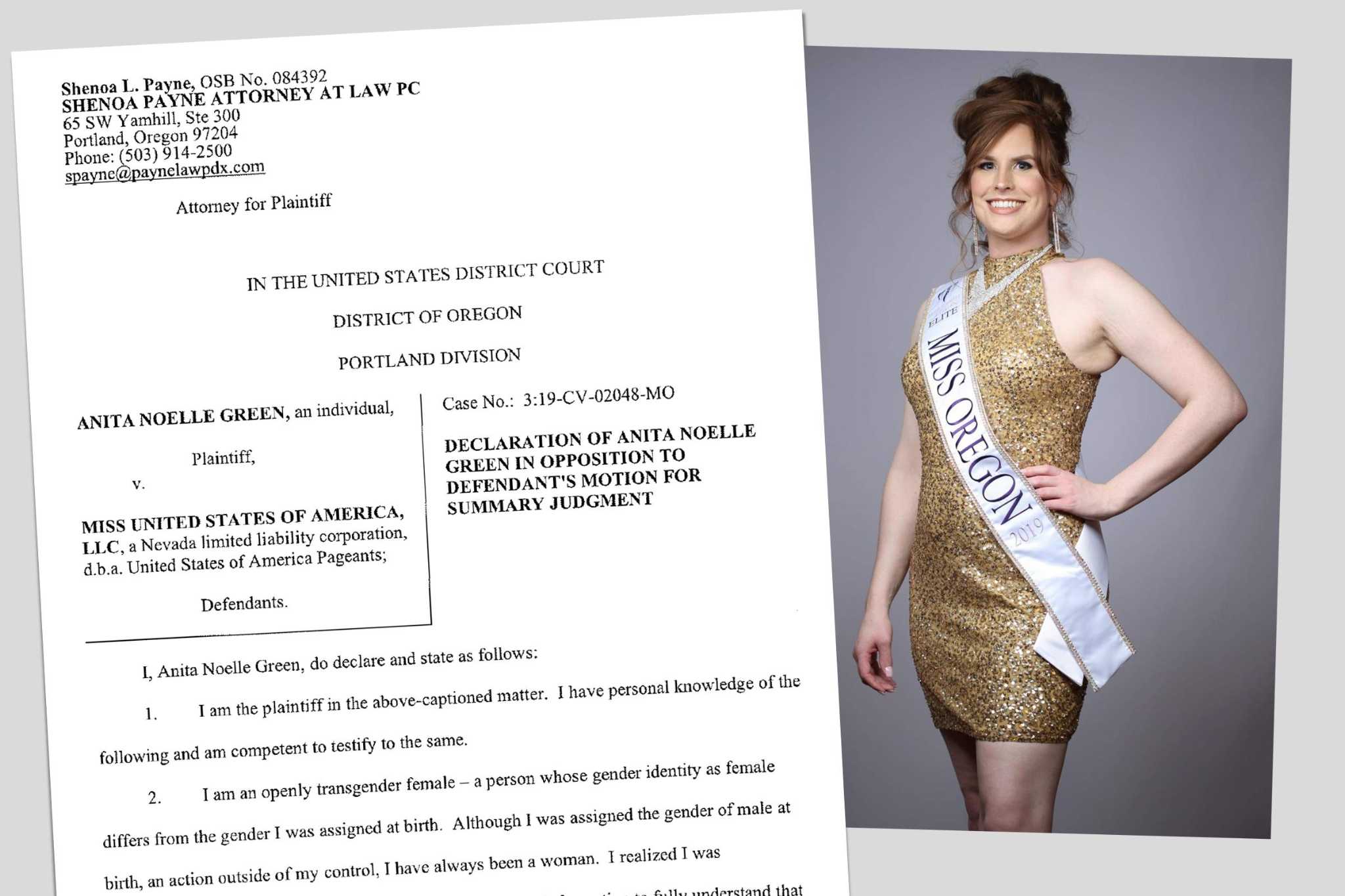
A national beauty pageant that bars transgender women as contestants is exercising its constitutional right of free speech to express its “ideal vision of American womanhood,” says a divided federal appeals court.
Citing the Supreme Court’s 1995 decision allowing sponsors of the St. Patrick’s Day parade in Boston to exclude a gay, lesbian and bisexual group, the Ninth U.S. Circuit Court of Appeals in San Francisco ruled Wednesday that Miss United States of America acted legally when it refused to allow Anita Noelle Green to compete in its 2019 pageant.
The event was held in Oregon, where Green, who had taken part in other beauty contests, had been crowned Miss Earth Elite USA Oregon in 2018. When she was rejected by Miss United States of America — which, unlike the better-known Miss USA and Miss America competitions, requires every participant to be “a natural-born female” — she sued under an Oregon law prohibiting any business that offers services to the public from discriminating based on gender identity.
But the appeals court said a beauty contest that sets standards for its contestants is expressing its views to the public and has the right to do so under the First Amendment.
“The Pageant is limiting who can compete on stage as performers in delivering a message to an audience,” Judge Lawrence VanDyke said in the 2-1 ruling, upholding a federal judge’s decision. “Beauty pageants are generally designed to express the ‘ideal vision of American womanhood.’ Who competes and succeeds in a pageant is how the pageant speaks.”
The Supreme Court made the same free-speech assessment, he said, when it unanimously allowed St. Patrick’s Day parade organizers to deny participation in the annual march by a group of gay, lesbian and bisexual Irish-Americans. It was no different, VanDyke said, than the decision by the composer of the Broadway show “Hamilton” to select only Black actors for roles as the nation’s founders, a decision that was “central to the message of the musical” and was protected from laws against racial discrimination.
Judge Carlos Bea joined VanDyke’s ruling. In a partial dissent, Judge Susan Graber said she did not believe the beauty pageant was a “public accommodation” covered by the Oregon law — but if it was, the pageant had no constitutional right to violate it by excluding transgender contestants.
“The state has a compelling interest in preventing discrimination on the part of commercial entities that offer their services to the public,” Graber wrote. She noted that newspapers commonly ran “Help Wanted — Male” and “Help Wanted — Female” ads before those were prohibited by laws against sex discrimination, laws that were also based on the content of speech but did not violate freedom of speech.
In a court filing, Green said she came out as transgender at age 17 and has undergone gender-conforming surgery. She said she participates in beauty pageants “for the same reason every woman wants to — to gain a sense of confidence and poise, and to feel beautiful and glamorous.”
Green could ask the full Ninth Circuit for a new hearing before a larger panel. Her lawyer, Shenoa Payne, declined to comment. But attorney Peter Renn of the gay-rights group Lambda Legal, which filed arguments in support of Green, said the ruling was “another dangerous instance of the First Amendment being weaponized against LGBTQ people.”
“Freedom of speech is not the freedom to discriminate,” Renn said. He also criticized the court majority’s “glaring refusal to even use Ms. Green’s pronouns when describing her case,” noting VanDyke’s repeated references to the plaintiff, sometimes twice in the same sentence, as “Green” rather than “she.”
Attorney Christina Kiefer of Alliance Defending Freedom, the conservative nonprofit that represented the beauty pageant, said the ruling was actually a victory for women, and referred to Green as a “male.”
“Ignoring the biological reality that men and women are different harms women and their opportunities to compete, excel and win,” she said, also invoking arguments that transgender women should be excluded from women’s sports. “Forcing the pageant to include a male would change its message of what it means to be a woman.”
The ruling was also praised by Eugene Volokh, a UCLA law professor who filed arguments on behalf of the Libertarian Law Council and the Institute for Free Speech in support of the pageant sponsors.
“The pageant can’t discriminate in hiring accountants, secretaries, anybody else who’s not there in front of the lights… but it can discriminate in choosing who is on stage” as part of its message, Volokh said. A contrary view, taken to its logical conclusion, he said, would also require the pageant — which limits entrants to unmarried, “natural-born” women between 18 and 28 — to allow participation by octogenarians or by men.
Bob Egelko is a San Francisco Chronicle staff writer. Email: begelko@sfchronicle.com
Twitter: @BobEgelko







